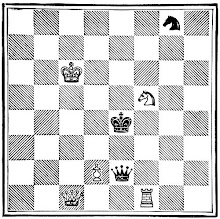SOMALI PIRATES SHOOT EACH OTHER
Wednesday, October 1, 2008


Tuesday, September 30, 2008
Pirates have been around forever. Their tales of looting the seas, pillaging villages and sailing across the globe survived long after the golden age of piracy. Cilician, Viking, Arab, Slavic or Chinese pirates all took to the sea, some as late as the last century.
Others ended their pirate “careers” as far back as medieval times.
Surprisingly, a few are still practicing this antiquated means of subsistence. Among them, the Somalis.
While other nations develop new technologies used in medicine to cure incurable diseases, or explore the universe and oceans for new forms of life, today’s pirates are incapable to relate to modern times, remaining in the rear of our epoch.
I just read that three Somali pirates have died during a gun fight among themselves on the Ukrainian-operated cargo ship they hijacked off Somalia's coast.
The episode is tragically funny. Besides, it presents an accurate depiction of the geographical area populated mainly by rival clans. What are the chances for these clans to put their egos aside, work for the benefit of their country and stop relying on foreign help?
There are voices trying to victimize the pirates, suggesting an explanation of the piracy consequential to extreme poverty and lack of opportunities.
What the rest of the world should know is that Somalia is not exclusively famine and fly-ridden children.
Some claim that Somali piracy is triggered by hunger as they seem to target ships delivering UN food aid, however crew members have been kidnapped for ransom. The French luxury yacht seized on 4 April, 2008 or the Hong Kong chemical tanker seized on 15 September, 2008 are only two examples that defy the hunger theory.
Pirates are almost exclusively based in Puntland, a rich coastal region of Somalia abundant in fish and other resources, exporting large quantities of seafood, dried fish, tuna, frankincense, gum Arabic and sea salt.
Recently, the pirates have hijacked ships carrying Russian tanks to Nigeria (“nice” job, Russia!) and 30,000 tonnes of petrochemicals (a Malaysian tanker).
All nations affected must act immediately. Ignoring the escalation of violence at sea gives Somalis a green light on piracy. A country without a national legal system, Somalia lacks the juridical apparatus to crush sea piracy. Some clans might even be against criminalization, just as they opposed the abolition of slavery in the past.
Reading about piracy today, when advanced societies travel in space and discover new planets, is like reading a book about cave men.
They should be sentenced to community service for at least 10 years.
Photos:Wikipedia
